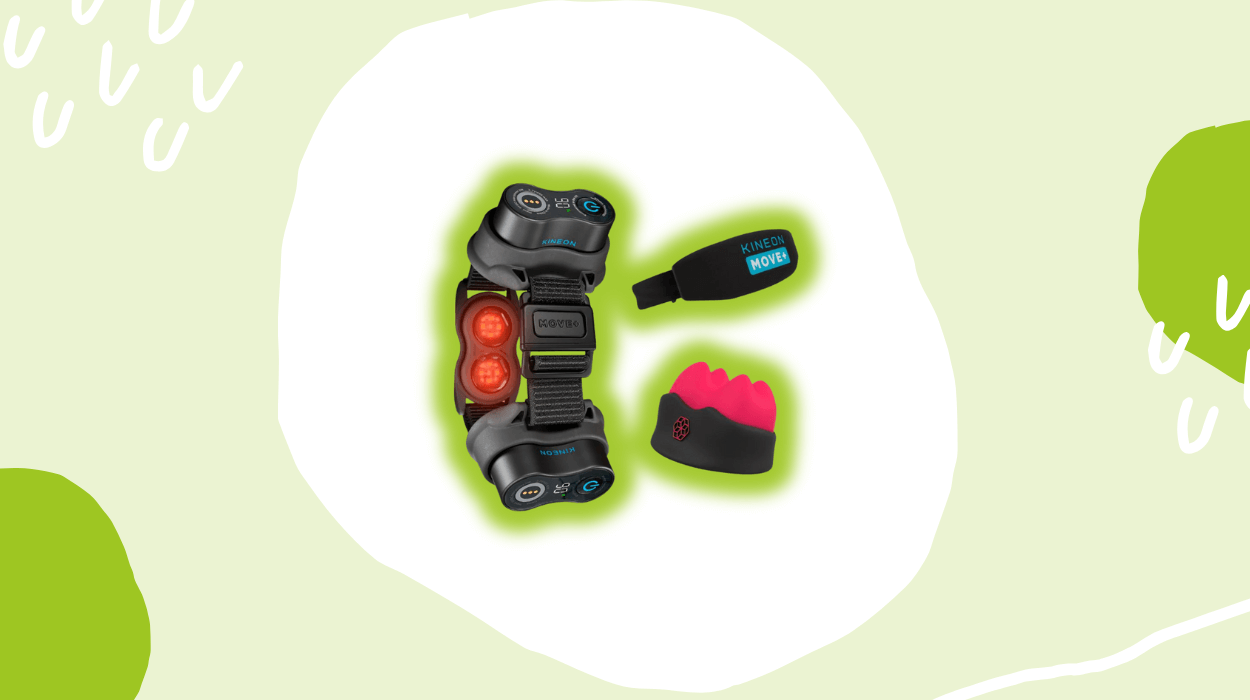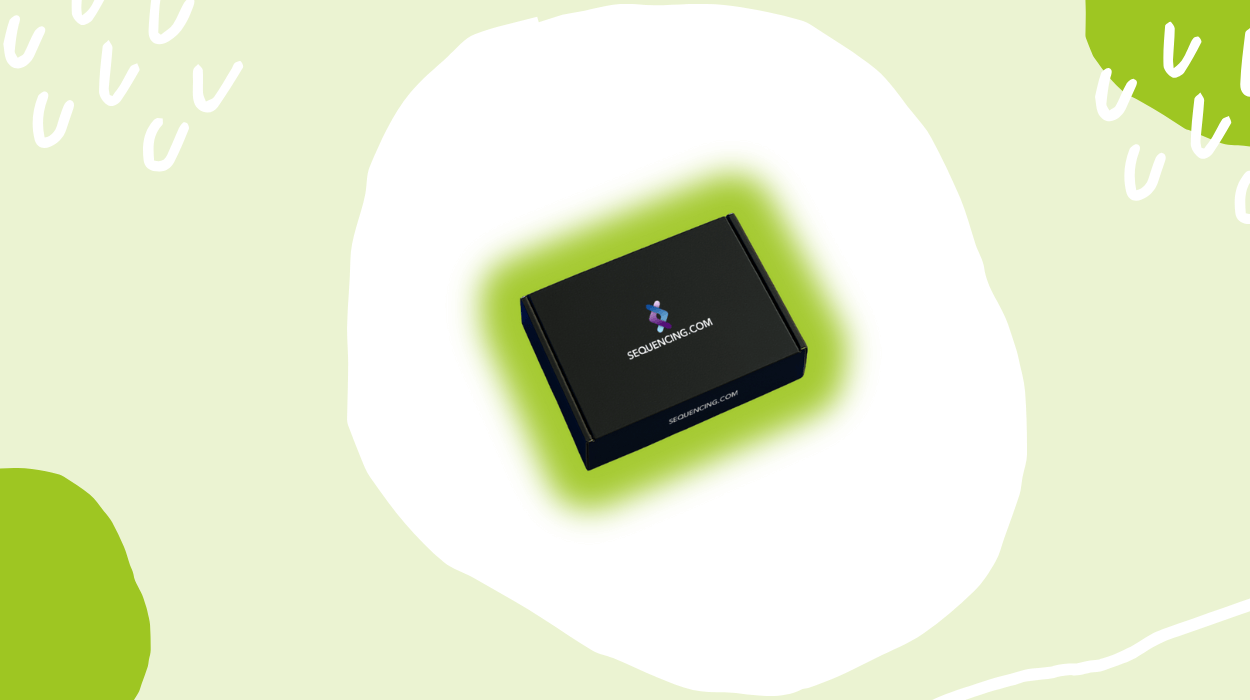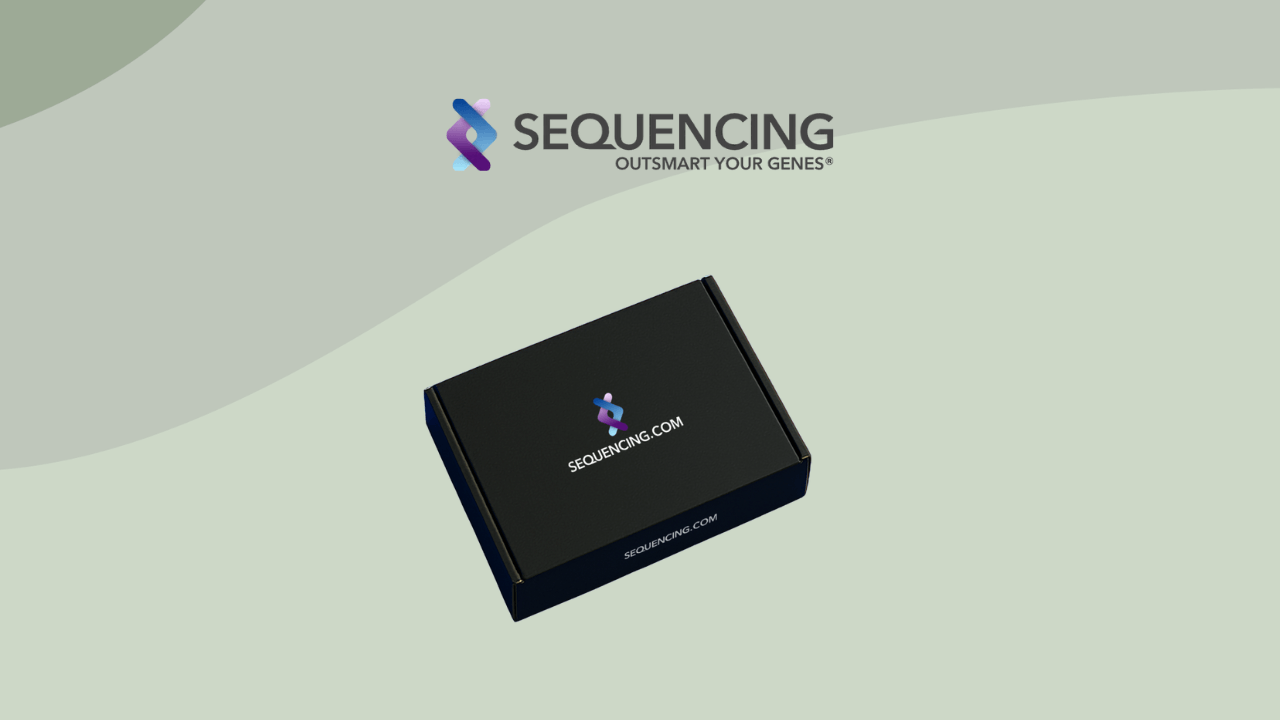

Sequencing works within the genomics space to provide access to personalized DNA testing services aimed at helping you understand your genetic makeup. The services might help optimize your wellness routine and provide ancestry tracking, which may help you understand potential risks specific to your genes.
Sequencing provides access to multiple genetic reports that cover various focus areas, including health predispositions, carrier status, nutrition-related traits, and lifestyle optimization. All these services are presented through both raw DNA data uploads and at-home testing kits provided by Sequencing.
In this review, you’ll find a breakdown of Sequencing's DNA testing offerings, advantages, insights into user experience, the brand’s approach to privacy, and potential limitations of Sequencing. The review also compares Sequencing with two similar brands to assess how Sequencing differentiates itself in providing access to genetic health services.
Founded by Dr. Brandon Colby, Sequencing is a genomics company that provides access to a wide range of DNA testing and genome analysis services. Its platform supports both DNA file uploads from other providers (like) and testing services, allowing you to either upload DNA data from testing services (like Ancestry and 23andMe) or obtain new data through Sequencing’s at-home DNA testing kits.
A core offering of the brand is its Whole Genome Sequencing (WGS) service, which aims to decode 100% of your DNA. The brand claims to cover approximately 3 billion base pairs of your DNA, providing an in-depth insight into your general wellness, disease risk, carrier status, and pharmacogenomics.
The at-home DNA testing kits provided by Sequencing are intended for easy use, which requires a simple cheek swab sample that is mailed to a CLIA-certified and CAP-accredited lab. Such certifications may imply that your DNA testing results have clinical-grade accuracy and that the brand maintains privacy in sampling and testing results.
According to the official site, Sequencing also offers access to a DNA app marketplace with 150+ reports and applications, which analyze your genes for health, fitness, ancestry, medication compatibility, carrier status, and nutrition.

According to the official site, the WGS Bundle provides access to whole genome sequencing (WGS) and offers a one-month Premium Genome Plan. The bundle provides 6 health reports, which cover multiple genetic insights, such as rare disease screening for over 15,000 complex and inherited conditions, such as metabolic syndrome, developmental disorders, or neurodegenerative diseases.
The WGS Bundle also includes a report on Ehlers-Danlos syndrome (with a focus on hEDS). It analyzes your genetic data to identify markers linked to connective tissue disorders, particularly hypermobile EDS (hEDS). Insights from this report may help highlight potential genetic risk factors affecting joint flexibility, skin elasticity, and tissue stability.
Other insights included in the six reports in the WGS Bundle include carrier screening for hereditary risks, autoimmune disorder analysis, a medication and drug response report, and a musculoskeletal health overview.
The WGS Bundle provides an at-home DNA collection kit that requires you to collect a saliva sample and send it to the Sequencing-affiliated labs. Such labs analyze your samples using 30x whole genome sequencing, which includes 30,000 genes and three billion genetic variants.
As per the official site, the WGS Bundle provides ongoing access to your raw genetic data in formats such as FASTQ, BAM, and VCF. It might be useful if you plan to consult with healthcare professionals or conduct personal research. The WGS Bundle from Sequencing is currently priced at $379.
According to the official site, the Expedited WGS Bundle from Sequencing provides access to 11 health reports, covering five new aspects beyond those offered by the WGS Bundle. These include areas like connective tissue disorders, cardiovascular health, development disorders, brain health, and reproductive and hormone health. Other aspects include the Carrier Screening, which assesses if you are a carrier of certain recessive genes that might pose risks to your child’s health.
The Expedited WGS Bundle offers access to expedited processing, typically around 6–8 weeks. It also comes with one month of access to the Premium Genome Plan, which offers resources for advanced DNA analysis and personalized AI-based insights into your health.
As per the official site, the Expedited WGS Bundle is currently priced at $479, alongside free U.S. shipping. Sequencing claims that it follows HIPAA, CLIA, and CAP-compliant privacy standards, meaning your testing data and health information are not shared without your consent.
As per the official site, the Ultra Rapid WGS Bundle is priced at a discounted price of $679, which also provides a one-month professional genome plan. The professional genome plan provides access to genetic health monitoring, professional health reports, and AI-based health insights and customized recommendations.
The Ultra Rapid WGS Bundle advertises a faster processing time of results, typically within 2–3 weeks. Your results are analyzed by Sequencing’s AI, which provides access to 21 health reports. These can provide genomic data and insights into areas like Cancer Risk, Digestive Disorders, Nutritional & Metabolic Health, Skin Health, Endocrine Health, Brain Health, Medication & Drug Response, Neurological Health, and Growth & Bone Health.
Sequencing provides access to at-home DNA sample collection, which means you do not need to visit a clinic or schedule an appointment and wait in line to provide your DNA sample. Once you place your order, the Sequencing brand provides at-home kits available in bundle options, such as the Whole Genome Sequencing (WGS) Bundle, Expedited WGS Bundle, and Ultra Rapid WGS Bundle.
Each kit includes sterile cheek swabs and prepaid return packaging. You need to collect the sample by swabbing the inside of each cheek for about one minute, then place the swabs into the vial. The setup offers flexibility, privacy, and control over when and where you collect your sample. It also ensures that your DNA is stabilized properly for whole-genome sequencing, without requiring any in-person support.
When compared with similar brands like Genomelink and SelfDecode, Genomelink does not provide an at-home sample collection kit, instead, you must upload raw DNA data from third-party testing services such as 23andMe, AncestryDNA, or MyHeritage to access reports.
While SelfDecode offers a kit, it relies on genotyping, which analyzes only a small portion of your genome. Sequencing allows you to collect your DNA sample from home with a provided kit and access nearly your entire genetic code, making the process both accessible and in-depth.
Sequencing may offer an extensive range of DNA-based reports covering categories like nutrition, fitness, ancestry, rare disease risks, and lifestyle, through a single platform. The brand also offers different at-home DNA testing bundles like the Expedited WGS Bundle and the Ultra Rapid WGS Bundle, which screen for multiple genetic variations and health conditions. For example, the Ultra Rapid WGS Bundle provides 21 health reports, which include screening for aspects like Nutritional & Metabolic Health, Autoimmune Disorders, Endocrine Health, Medication & Drug Response, Musculoskeletal Health, and Carrier Screening.
The Sequencing brand also provides a marketplace that includes 150+ apps and reports, such as the Next‑Gen Rare Disease Screen, which scans for more than 15,000 conditions and updates reports based on emerging research.
However, the Genomelink brand provides over 350 trait reports and ancestry insights across 130+ health areas, but its reporting insights are trait-based and not diagnostic. Meanwhile, the SelfDecode brand offers access to bundle options like the Essential+ Bundle, which provides 130+ DNA-based reports based on genotyping.
While Sequencing claims to offer prompt customer support and handling of queries/concerns, several verified reviews on the Better Business Bureau highlight recurring issues with the brand’s customer service support and subscription billing.
A common concern indicated in BBB reviews was automatic enrollment into paid services. Many customers stated they never knowingly agreed to the charges and felt misled by unclear onboarding or fine-print policies of Sequencing. For example, one BBB complaint involved Sequencing charging a different credit card than the one originally authorized, raising serious concerns about payment security and consent.
Customer support was a frequent source of frustration on BBB. Multiple users stated they received no replies to emails, phone calls went unanswered, and support tickets were ignored. These unresolved issues left customers without clarity or resolution, especially when billing or account access was involved.
Reddit discussions also indicated some concerns with Sequencing’s services. Some users on Reddit have questioned the accuracy of Sequencing’s testing reports, pointing to inconsistencies between its reports and results from clinical-grade DNA tests. Such negative user responses may indicate that Sequencing may not have the infrastructure or policies in place to properly support its customers.
The Sequencing brand offers membership subscription plans, the terms of which may be confusing and non-transparent. For example, the Plus Plan is priced at $19 per month but does not include many core health reports (such as reports on disease risks like type 2 diabetes, Alzheimer's, or heart disease) you might expect from a genetic testing service.
Sequencing’s Premium Plan costs $39 per month and integrates more features, such as genome updates and health scans, but introduces hidden costs through monthly report credits. You get $10 in credits that roll over up to $40, but these are to be used separately to access some reports, meaning you still have to pay more out of pocket to unlock DNA testing data.
Moreover, subscription terms also limit flexibility. For instance, Sequencing’s Plus Plan is not HSA/FSA eligible, cutting off options for health-related spending reimbursement. It may become difficult to understand what you’re paying for upfront and what’s included in each plan.
Other brands typically offer much clearer and more user-friendly subscription pricing structures. For example, Genomelink provides a free tier access to over 50 trait reports and an optional, clearly defined premium subscription upgrade. Meanwhile, SelfDecode uses an annual pricing model $99–$120/year, giving you access to over 1,000 health-focused DNA reports, transparent cancellation terms, and no hidden upsells.
Genomelink and Sequencing.com take different approaches in how they position themselves within the genetic testing space. The Genomelink brand operates primarily as an insight-expansion platform, which allows you to upload DNA data from third-party genotyping services like MyHeritage, AncestryDNA, or 23andMe. Meanwhile, Sequencing does not rely on third-party genotyping providers for DNA data. Instead, the brand provides access to at-home DNA testing kits in the form of bundles, such as the Whole Genome Sequencing (WGS) Bundle, Expedited WGS Bundle, and Ultra Rapid WGS Bundle.
When it comes to the scope of genetic data analyzed, Genomelink works with genotyping data derived from third-party uploads and focuses on trait-based analysis. It interprets the genetic data to analyze over 350 traits related to lifestyle, personality (like loneliness and empathy), ancestry, physical health (such as longevity, body fat mass, and sleep duration), and food and nutrition.
On the other hand, Sequencing emphasizes whole-genome sequencing, analyzing 100% of your genome, around 3 billion base pairs, at 30x coverage. The in-depth sequencing helps capture the full spectrum of genetic variation, including rare variants, structural changes, and disease-relevant mutations. Some examples of DNA-based insights provided by Sequencing include rare disease screening (15,000+ conditions), autoimmune disorders, musculoskeletal health, and medication & drug response.
Some differences also exist between the privacy and data control policies of both brands. Genomelink states that it does not engage in unauthorized data sharing and maintains privacy regarding DNA testing data, but the brand depends on third-party DNA testing providers, which may raise some data privacy risks. Meanwhile, Sequencing offers a robust policy under its “Privacy Forever” approach, stating that it does not share or sell DNA data and provides you with unlimited storage and full access to download or delete your genetic information.
Both SelfDecode and Sequencing have some similarities when it comes to handling at-home sample collection and DNA upload processes. SelfDecode offers a saliva-based DNA test kit and also allows you to upload your raw DNA data from other testing service providers, such as 23andMe, Illumina, and Ancestry. However, through the SelfDecode DNA Kit, the brand also provides the option for at-home DNA sample collection. Meanwhile, Sequencing primarily focuses on at-home sample collection through kits, which come in bundle options like the WGS Bundle and the Rapid Prime WGS Bundle.
The two brands also diverge in terms of the depth and focus of their genetic analysis. SelfDecode emphasizes health, wellness, and ancestry, and makes use of polygenic risk scoring models paired with lifestyle and lab data to deliver 1250+ actionable health reports (as part of the Essential Bundle). The report covers over 200 million SNPs, including screening for aspects like fitness, anxiety, Type 2 diabetes, metabolic health, allergies summary, thyroid health, and fertility.
Meanwhile, Sequencing conducts whole-genome sequencing, which analyzes 30,000 genes and approximately three billion base pairs. Such DNA-based insights are centered around complete genome data, including rare variant detection, pharmacogenomics, and advanced health screening. The brand offers an Ultra Rapid WGS Bundle, which provides 21 health reports, covering aspects like brain health, digestive disorders, skin health, connective tissue disorders, cancer risk, and endocrine health.
When it comes to practitioner engagement, SelfDecode offers a dedicated clinician platform known as Pro Connect, where health professionals can manage clients, customize reports, and white-label outputs. Meanwhile, Sequencing does not offer a segmented clinical platform, but allows healthcare professionals to access your DNA reports (with your consent).
There is also a difference in pricing models between the services of the brands. SelfDecode prices its full-service bundles, such as Essential, Essential+, and Ultimate, in the range of around $418–$695. In contrast, the DNA testing bundle options from Sequencing include WGS Bundle, Expedited WGS Bundle, and Ultra Rapid WGS Bundle, which are priced in the range of $379–$679.
As part of our evaluation of Sequencing, we closely examined its credibility across independent review platforms and consumer feedback channels.
On Trustpilot, Sequencing holds a 4.5 out of 5 rating based on over 560 customer reviews, reflecting a mostly positive response regarding its detailed genetic reports, ease of use, and customer support. Similarly, TenereTeam rates the Sequencing brand 4.6 out of 5, though the ratings are based on a small sample size of just 15 publicly visible reviews.
However, our evaluation also takes into account Sequencing’s C+ rating on the Better Business Bureau platform, which arises from complaints filed against the business. It may indicate areas where the brand could improve, particularly in managing service expectations, fulfillment timelines, or customer communication.
To evaluate Sequencing.com from a customer-centric perspective, we closely analyzed verified user reviews across trusted platforms like Trustpilot. Such feedback may offer insights into how the brand performs in real-world scenarios, beyond just its features and claims.
Most customers shared positive experiences, especially highlighting the platform’s fast turnaround times, accurate genome sequencing, and the simplicity of understanding the reports. Some users appreciated Sequencing’s AI-driven support assistant for its ability to clarify genetic terminology and risk factors. A few customers also commended Sequencing’s support team for being responsive, informative, and helpful.
However, some Trustpilot users expressed dissatisfaction with the lack of definitive answers in the reports provided by Sequencing, describing them as vague or overly cautious. Other consumers encountered technical issues, such as file download errors or formatting glitches across the Sequencing-affiliated apps. A few users also raised concerns about billing transparency, particularly around subscriptions that were difficult to cancel or modify.
Sequencing centers its genetic testing services around whole genome sequencing. The brand claims to provide you with access to health, ancestry, and wellness reports derived from a comprehensive review of your genome data.
The Sequencing brand also provides access to ongoing updates based on emerging genetic research and subscription options from the brand, such as the Plus Plan and Premium Plan.
However, it is important to note that there are repeated concerns around billing practices and customer service, notably automatic enrollment in paid services and unresponsive customer support. Other problems have also surfaced with some users questioning the accuracy of Sequencing’s reports compared to clinically validated DNA testing services. These issues may be important to consider when deciding if Sequencing matches with your expectations and needs.
Contact us at [email protected] or follow @leafsnap on Twitter! View our Privacy Policy.